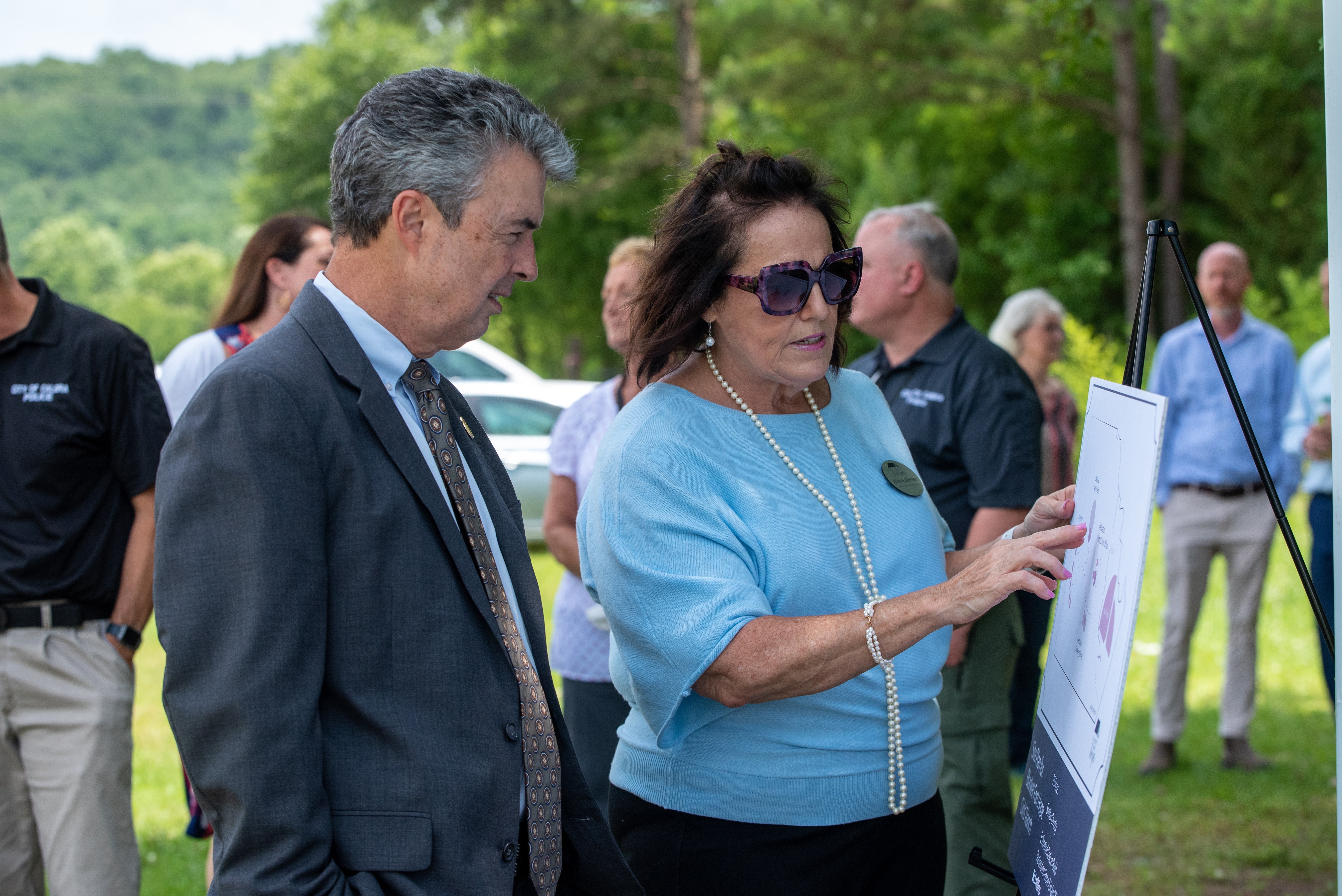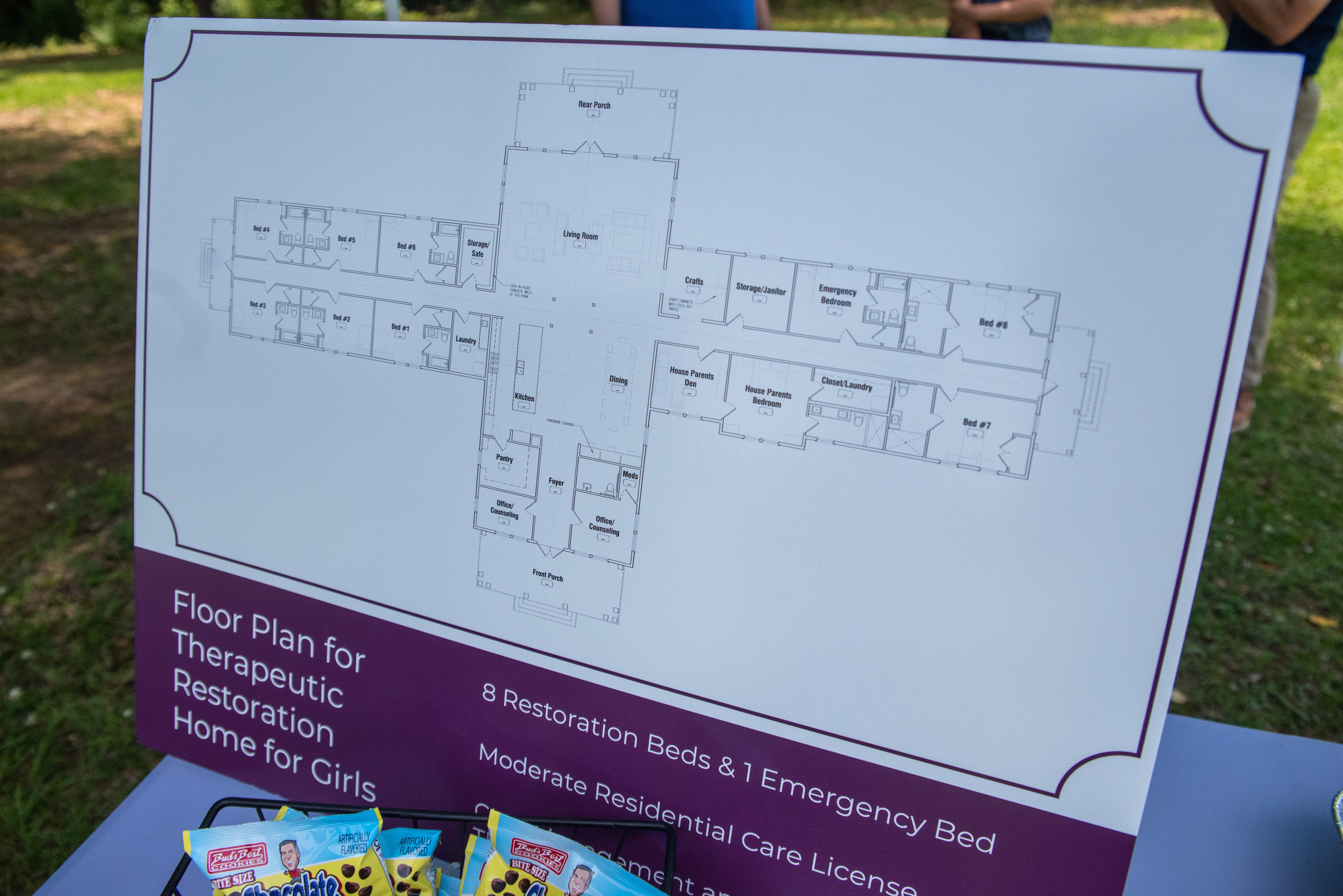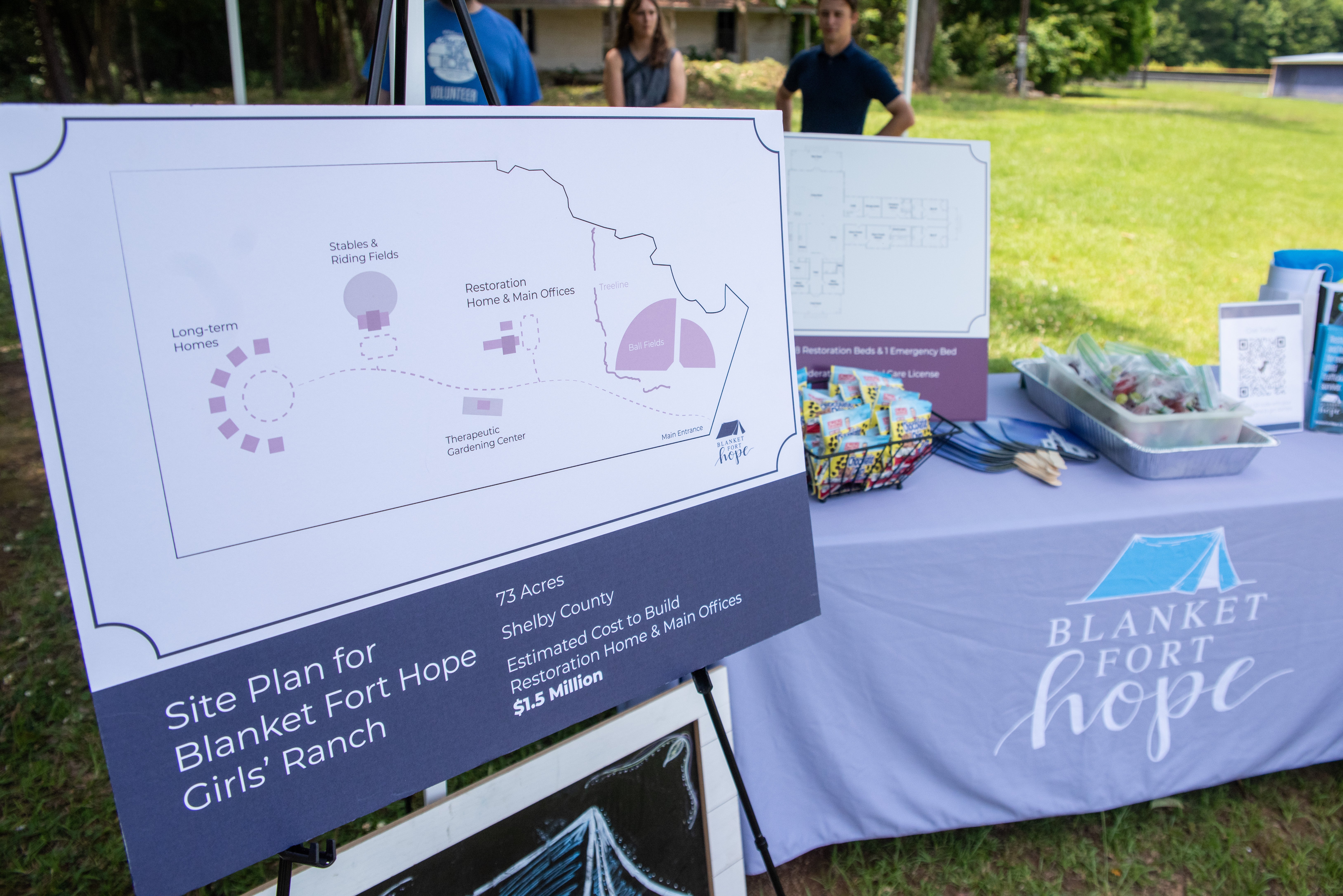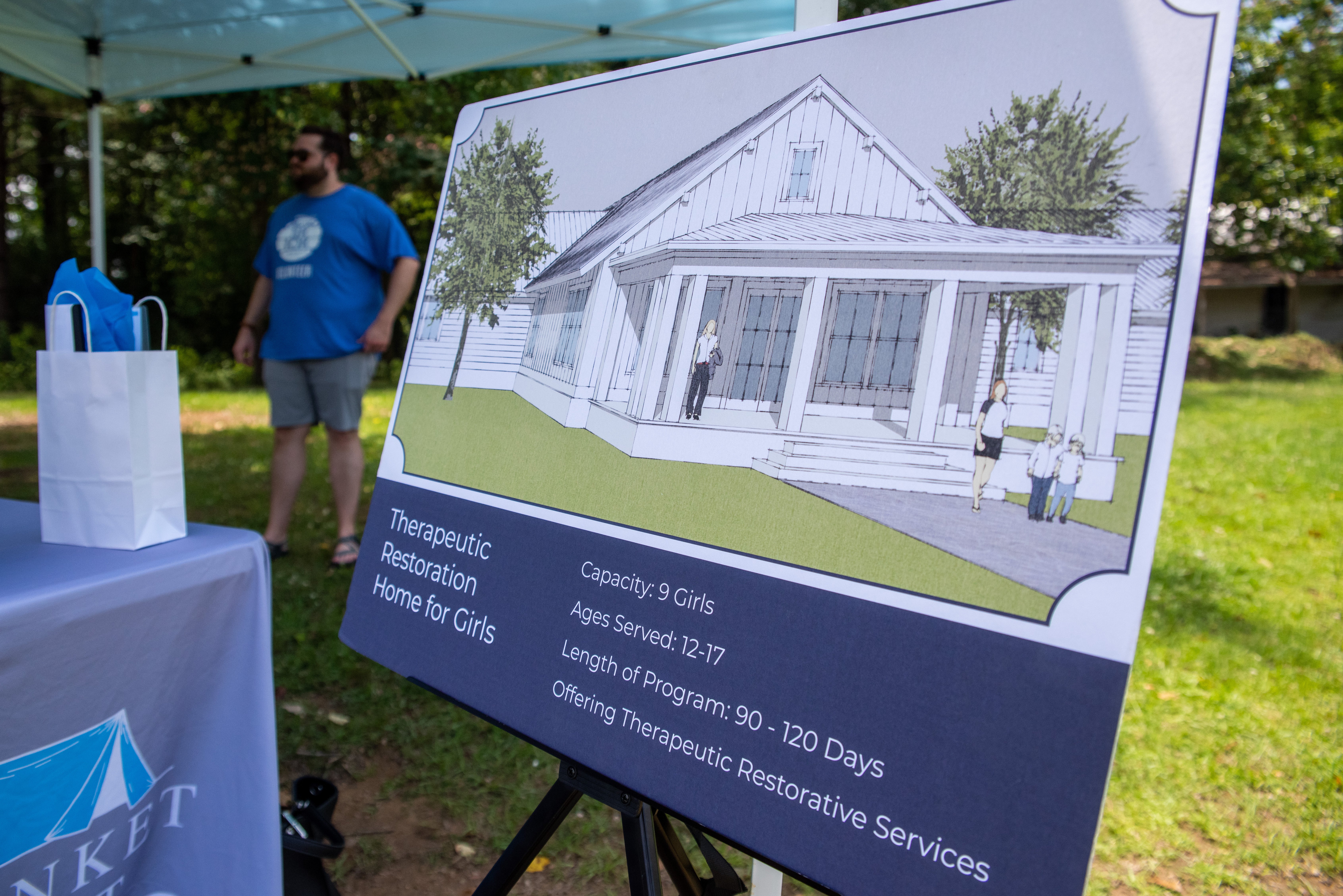Blanket Fort Hope unveils plans for restoration home for trafficking survivors
Published 8:19 am Thursday, June 16, 2022
|
Getting your Trinity Audio player ready...
|
By MICHELLE LOVE | Staff Writer
COLUMBIANA– On Thursday, June 9, the Pelham-based organization Blanket Fort Hope unveiled the plans for its latest project – an in-house therapeutic restoration home in Columbiana for survivors of sex trafficking.
Blanket Fort Hope is the only nonprofit organization in the Southeast dedicated to specifically helping child survivors of sex trafficking.
The building is designed to house nine girls from ages 12-17. The girls will live at the home anywhere from 90-120 days, and during that time, they will receive a variety of services dedicated to helping them heal from their trauma.
The property takes up approximately 73 acres and will even include an area for stables for the girls to take part in equine therapy. The project’s projected cost is $1.5 million, though the acreage has already been paid for. BFH’s CEO and founder Alexa Likis James said the goal is to start building within the year.
Attorney General Steve Marshall came out to the site to view the plans and experience the full scope of the project. Marshall gave his full support.
“This is obviously an issue that if you didn’t recognize or understand the importance of it, you wouldn’t be here today,” he said to the people present. “The reality is, at some point, those rooms are going to be filled by people who desperately need what vision and passion you all are creating to be able to serve. The reality is they come packaged with the most difficult issues to deal with. They’re typically going to be physically or sexually abused, likely they were raised in a way they were incredibly transient and likely drugs or alcohol is a significant problem. It’s not easy, but for groups like this, where would they be?”
Marshall said members of law enforcement and the government are not equipped to help survivors become whole again after their ordeal, and groups like BFH are vital in making sure they are as supported in that journey as possible.
James said none of this would be possible without God, and she said it is truly a blessing to have the community rally behind the project. Next on the agenda is to raise the remaining $1.2 million dollars for the project.
“People can attend our Blanket Fort Hope run in the fall, our gala, they can find us on Facebook or start campaigns of their own,” she said. “It is imperative that we get this home built and that these kids get help.”
Roughly 57 percent of trafficking victims in the state of Alabama are minors, and James said the grim reality is some of those children are as young as 4 years old. She said having established therapeutic housing for survivors will be a great accomplishment for the state in addressing what is a huge problem.
“I think people do need to understand that we do have a problem here in Birmingham and in Alabama,” she said. “I-65 and I-20 are hotspots. We do not have a specific location just for helping victims of human trafficking in this area, and we cannot turn our heads any longer. We need help from people. We’re here to stay and we’re here to make a difference in these kids’ lives. We’re not going anywhere.”
While staying at the home, the girls will receive a diverse variety of services to help them heal from their trauma, which James said takes many forms ranging from psychological, physical, drug overdoses, pregnancies and STDs.
James and her BFH team have spent years building a strong network of support groups to make sure the home is a success before ground has even been broken. They have strong relationships with the attorney general, local and statewide DHR offices, hospitals and child advocacy centers who are all willing to help with the cause.
James said she believes having the home will open the eyes of those who don’t want to acknowledge that trafficking is happening in their own backyard.
“As sad as it is, I think part of what we’re pilgriming is the ability that we will see in real time what is happening, and we’ll be able to offer in real time the services that need to happen to help these people heal,” she said. “Yes, 57 percent is correct, and yes, Alabama has a huge problem. You’re not just hearing it anymore, you’re seeing it. We know it’s happening because of what we do every day. It’s a hard subject to talk about with people and it’s scary to people. I do get that, but the old adage goes it’s one thing to hear about evil happening, but it’s a whole other thing to see evil happening and not do anything about it. I believe that. If we don’t ever do anything about it, it’s just going to get scarier. This is an opportunity for us to say, ‘Stop.’ I really think it’s going to start a movement across the United States, I believe that with my heart.”













